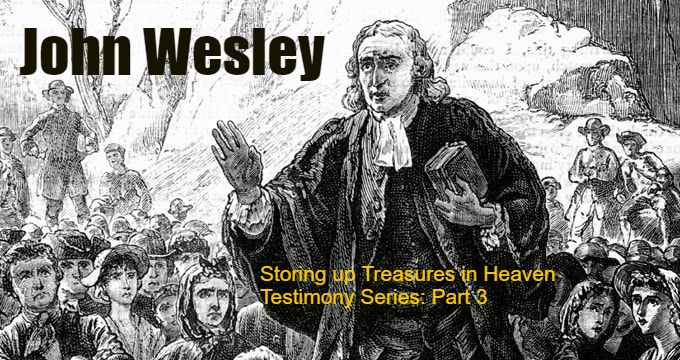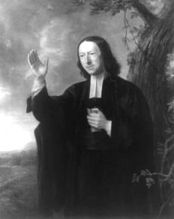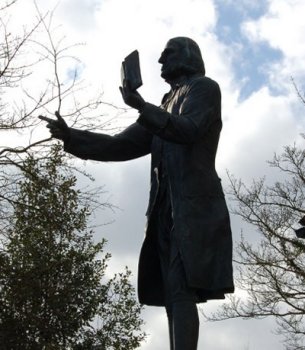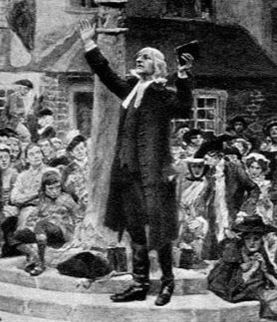One day an incident occurred that changed his entire view on money. He had purchased a number of beautiful picture frames and had just hung them on his walls when a poor cleaning woman came to his door. She had no coat, only a light linen dress, and this was wintertime. He reached into his pocket to give her some money to buy a coat but found he did not have enough. Immediately the thought struck him that the Lord was not pleased with the way he had spent his money. He asked himself, ‘Will thy Master say, “Well done, good and faithful steward”? Thou hast adorned thy walls with the money which might have screened this poor creature from the cold!’ From that year, 1731, he began to limit his expenses so that he would have more money to give to the poor. He records that his income was 30 pounds and his living expenses 28 pounds, so he had 2 pounds to give away. The next year his income doubled, but he still managed to live on 28 pounds, so he had 32 pounds to give to the poor. In the third year, his income jumped to 90 pounds. He kept 28 pounds and gave away 62 pounds. In the fourth year, he received 120 pounds. As before, his expenses were 28 pounds, so he gave away 92 pounds. Soon he was living on 30 pounds and giving away nearly 1,400 pounds a year. Although his giving began as a religious practice to help the poor it soon became the habit of a born-again preacher who was evangelising vast multitudes across the entire nation for Christ.
In 1735 while still unconverted he travelled to the North American colonies to serve as a missionary to the Native American Indians. After much frustration and failure he returned to England at the beginning of 1738. That May in a small meeting in the backstreets of London as a man read Martin Luther’s commentary on the book of Romans his heart was strangely warmed, the light of the Gospel suddenly shined in his heart, and he was converted. One year later he preached in the open air for the very first time to very poor miners at Bristol at 5.30 in the morning. As he preached men wept over their sin and found Christ. It was the beginning of a wonderful revival in the land.
In 52 years of revival ministry he had travelled 225,000 miles, preached 40,000 times―often to crowds of over 20,000 people―and gave away 30,000 pounds. When he died there were 72,000 Methodists in Britain and Ireland as well as 57,000 in America. He had also ordained and sent out 1,500 travelling preachers. He once said that when he died, if anyone found ten pounds in his possession then the world would know that he was a thief and robber. It has often been said that when Wesley was carried to his grave, he left behind him a good library of books, a well-worn clergyman’s gown, a few coins gathered from his pockets and drawers, and the Methodist Church.




 RSS Feed
RSS Feed